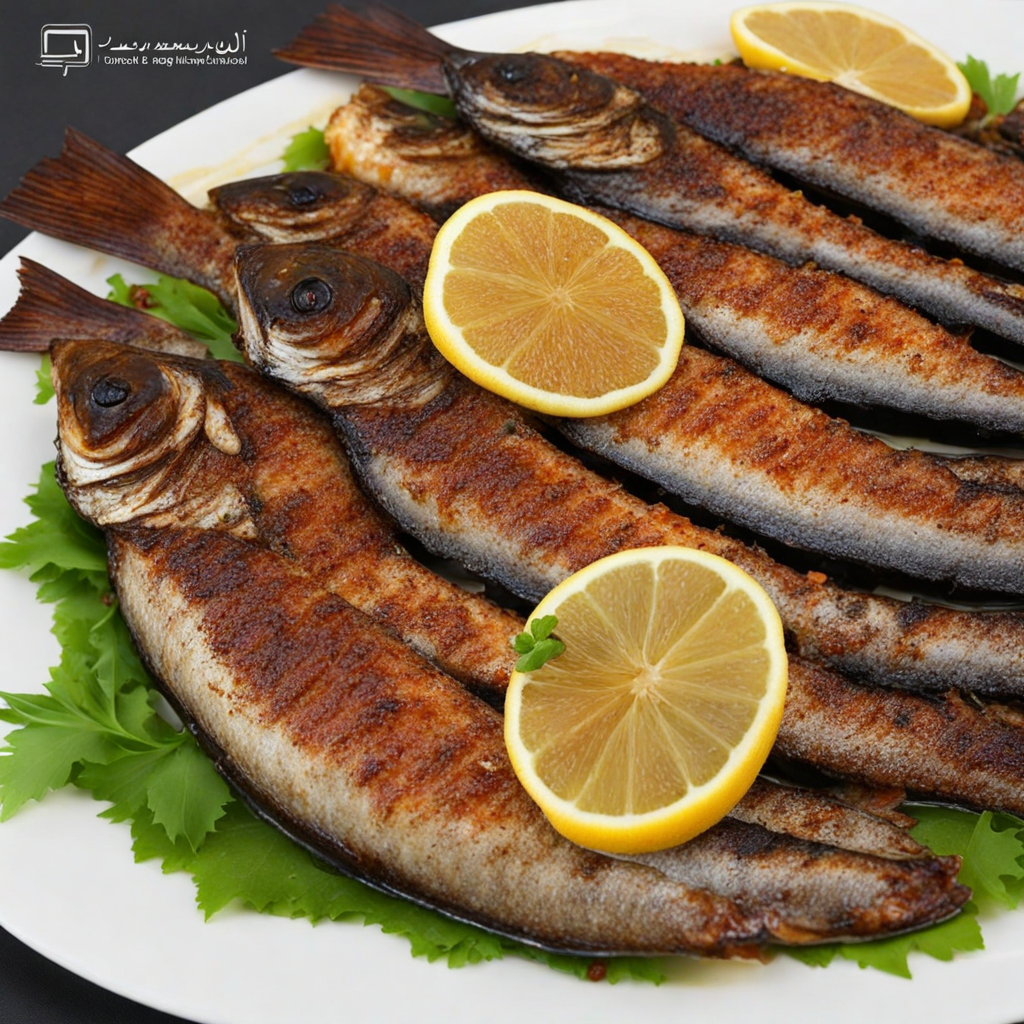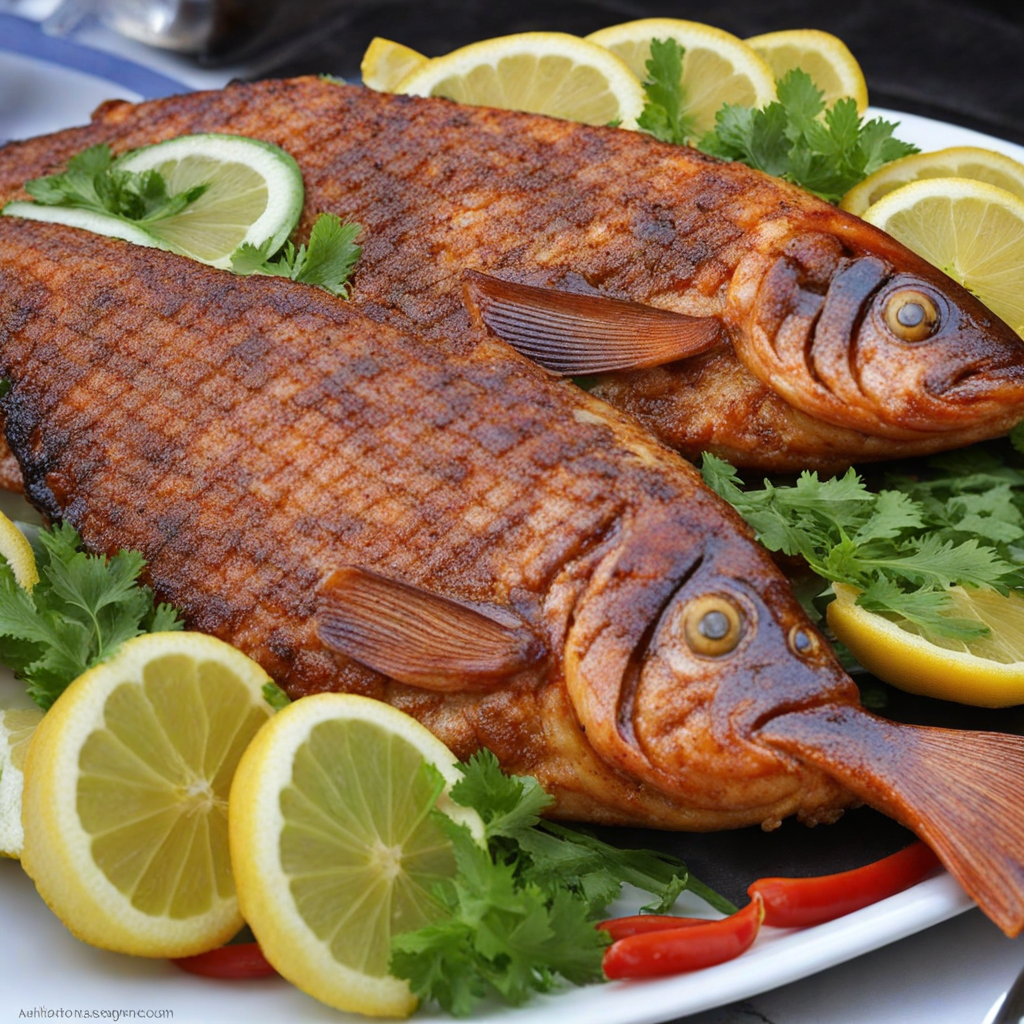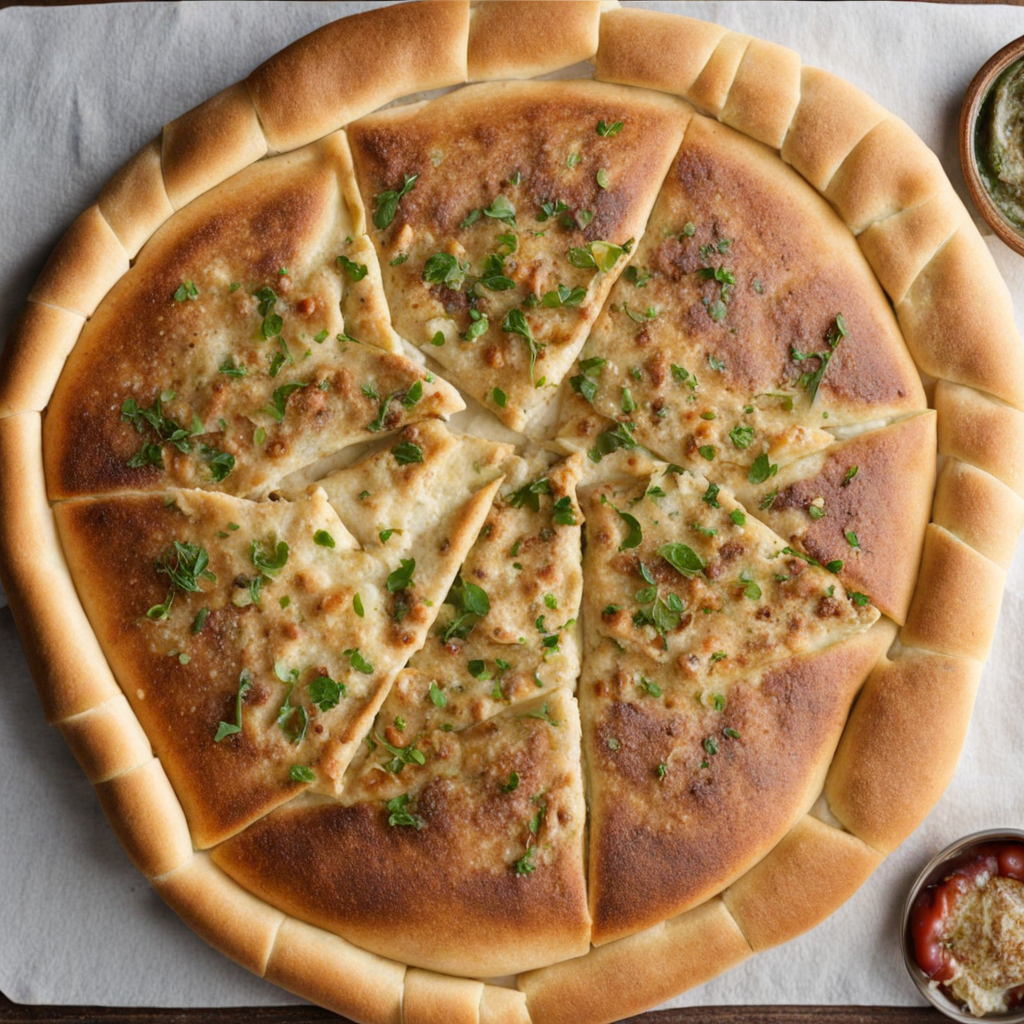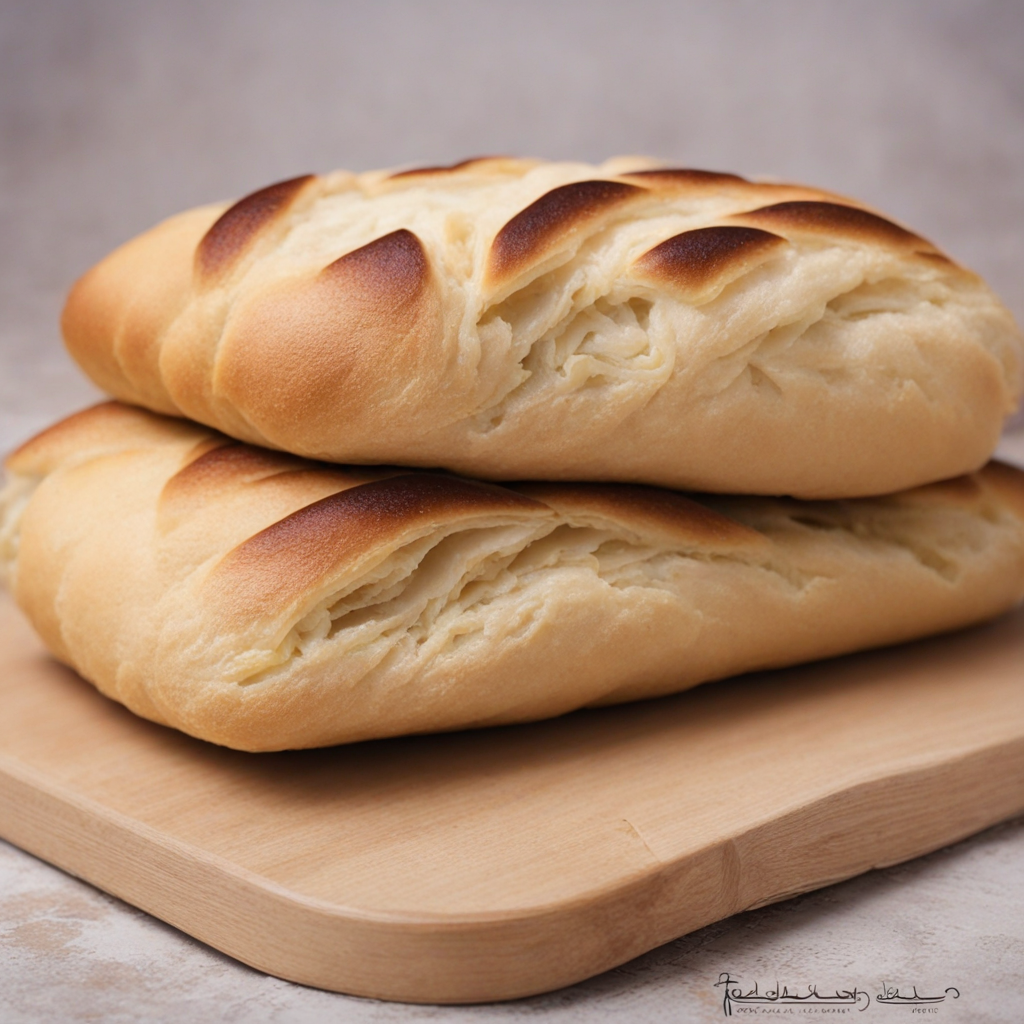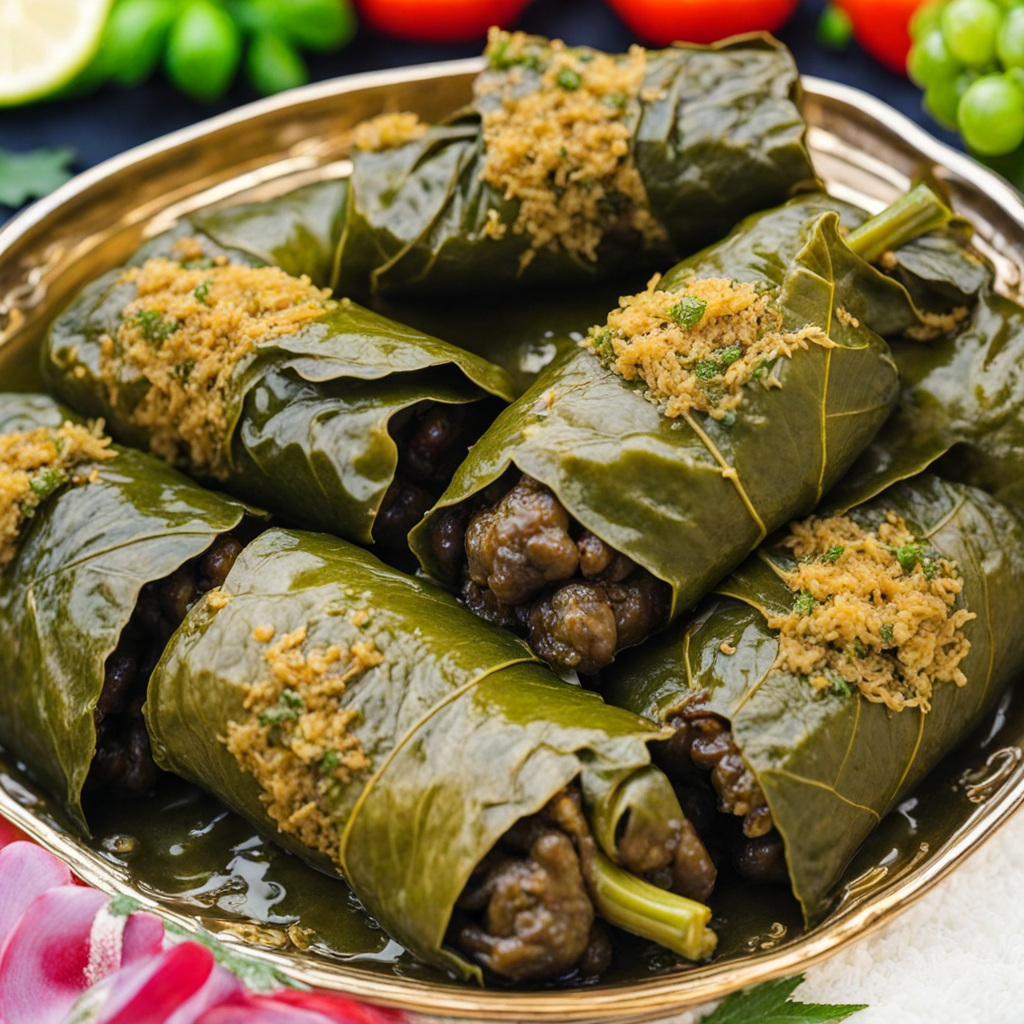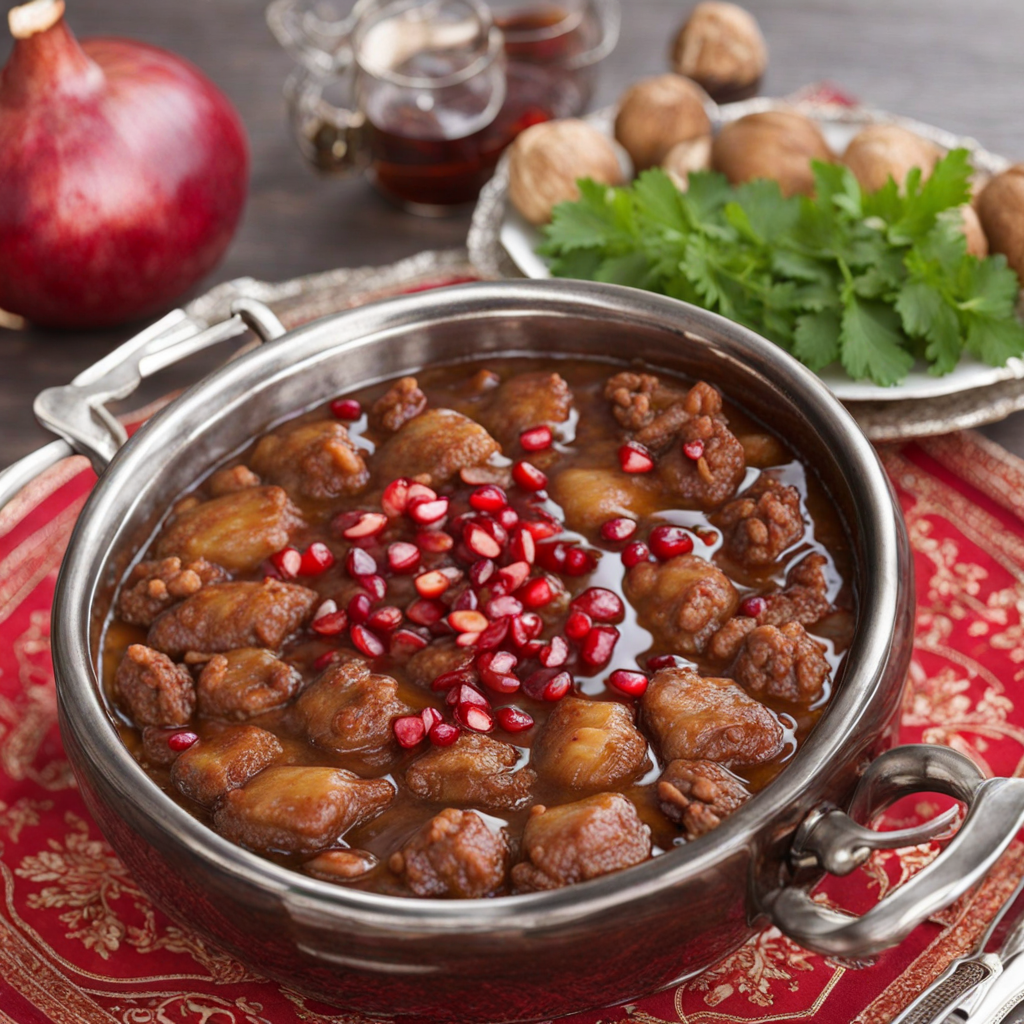Masgouf
Masgouf is a traditional Iraqi dish that showcases the rich flavors of the region, primarily featuring fish, typically carp, which is abundant in the Tigris and Euphrates rivers. The preparation of Masgouf is a culinary art in itself; the fish is marinated with a blend of spices, including turmeric, salt, and black pepper, and then grilled over an open flame, often on a wooden plank. This method of cooking not only imparts a distinct smoky flavor but also helps retain the moisture and tenderness of the fish, making each bite a delightful experience. The presentation of Masgouf is as enticing as its flavor. Once grilled, the fish is often served whole, with the skin slightly charred and crispy, while the flesh remains juicy and flavorful. It is commonly garnished with slices of fresh tomatoes, onions, and sometimes a sprinkle of fresh herbs like parsley or cilantro. The dish is usually accompanied by side dishes such as rice, flatbread, and a tangy sauce made from tahini or a spicy chili paste, which enhances the overall flavor profile and adds a refreshing contrast to the rich fish. Masgouf is more than just a meal; it is a communal experience often enjoyed in gatherings and celebrations. Diners typically share the fish, tearing off pieces with their hands and savoring the robust flavors that come from its unique grilling method. The combination of the smoky fish, the freshness of the accompaniments, and the vibrant atmosphere surrounding its preparation make Masgouf a must-try dish for anyone looking to explore the culinary heritage of Iraq. Each bite tells a story of tradition and culture, inviting food lovers to immerse themselves in the authentic taste of this Middle Eastern gem.
How It Became This Dish
Origin of مسگوف مسگوف, pronounced as "masgouf," is a traditional Iraqi dish known for its deliciously grilled fish, typically prepared using the indigenous river fish called "sham," or carp. The origins of masgouf can be traced back to ancient Mesopotamia, where the Tigris and Euphrates rivers provided a rich habitat for fish. This aquatic bounty played a significant role in the diet of the people living in the region. Archaeological findings indicate that fish was a staple food for the Sumerians, Babylonians, and Assyrians, who utilized various methods of cooking, including grilling and smoking. The traditional method of preparing masgouf involves marinating the fish in a blend of spices, such as cumin, coriander, and sometimes garlic, before it is skewered and grilled over an open flame. The grilling technique has remained largely unchanged for centuries, with the fish often placed on a wooden plank, allowing the smoke to infuse the meat with a unique flavor. This method not only enhances the taste but also pays homage to the ancient practices of cooking fish along the rivers. \n\n Cultural Significance In Iraq, masgouf is more than just a dish; it is a symbol of hospitality and community. Traditionally served during family gatherings, celebrations, and feasts, masgouf represents the warmth and generosity of Iraqi culture. The dish is often accompanied by a variety of sides, including rice, salad, and fresh bread, creating a communal dining experience that brings people together around the table. The preparation and consumption of masgouf are steeped in rituals that reflect the deep cultural heritage of Iraq. Vendors selling masgouf can often be found along the banks of the Tigris River, where the atmosphere is lively and filled with the rich aromas of grilled fish. These vendors have become a staple of Iraqi street food culture, showcasing the dish's accessibility and popularity. Eating masgouf by the riverside is a cherished experience, connecting people to their land and history. \n\n Development Over Time Throughout history, masgouf has evolved, adapting to the changing culinary landscape of Iraq while retaining its traditional roots. During the Ottoman Empire, the dish gained popularity beyond the borders of Mesopotamia, influencing neighboring regions. Variations of masgouf began to emerge, with different spices and cooking methods reflecting local tastes. However, the essential elements—fresh fish, grilling, and communal sharing—remained constant. The modern era has brought new challenges and opportunities for masgouf. Following the Gulf War in the early 1990s and subsequent conflicts, the availability of fresh fish and traditional cooking methods faced significant setbacks. Many Iraqi families had to adapt, sometimes using alternative fish or cooking techniques to recreate the beloved dish. However, the resilience of Iraqi culture ensured that masgouf remained a cherished part of the national identity. In recent years, as Iraq has begun to stabilize, there has been a resurgence of interest in traditional foods, including masgouf. Chefs and culinary enthusiasts have sought to revive this historical dish, experimenting with new ingredients while respecting its traditional preparation methods. This revival is not only a celebration of Iraqi heritage but also an effort to promote the country’s rich culinary landscape to the world. \n\n Masgouf in Contemporary Iraq Today, masgouf is celebrated as a national dish, often featured in food festivals and culinary events across Iraq. Its presence on restaurant menus has grown, with many establishments specializing in the dish, offering a wide range of variations to cater to diverse palates. The rise of social media has also played a role in popularizing masgouf, as food bloggers and influencers share their experiences of enjoying this iconic dish, complete with picturesque images of the grilling process and the final presentation. The globalization of food culture has introduced new influences into the traditional preparation of masgouf. Some chefs have incorporated international flavors, experimenting with marinades and sides that reflect modern culinary trends. Despite these innovations, the essence of masgouf—its simplicity, freshness, and communal spirit—remains intact, allowing it to resonate with both locals and visitors. \n\n Conclusion The journey of masgouf from ancient Mesopotamia to contemporary Iraq illustrates the enduring significance of food as a cultural touchstone. As a dish that embodies the spirit of community, hospitality, and resilience, masgouf serves as a reminder of the rich history and traditions of the Iraqi people. Whether enjoyed riverside or in a bustling restaurant, masgouf continues to be a beloved culinary treasure, cherished by generations and celebrated in the hearts of those who call Iraq home.
You may like
Discover local flavors from Iraq


